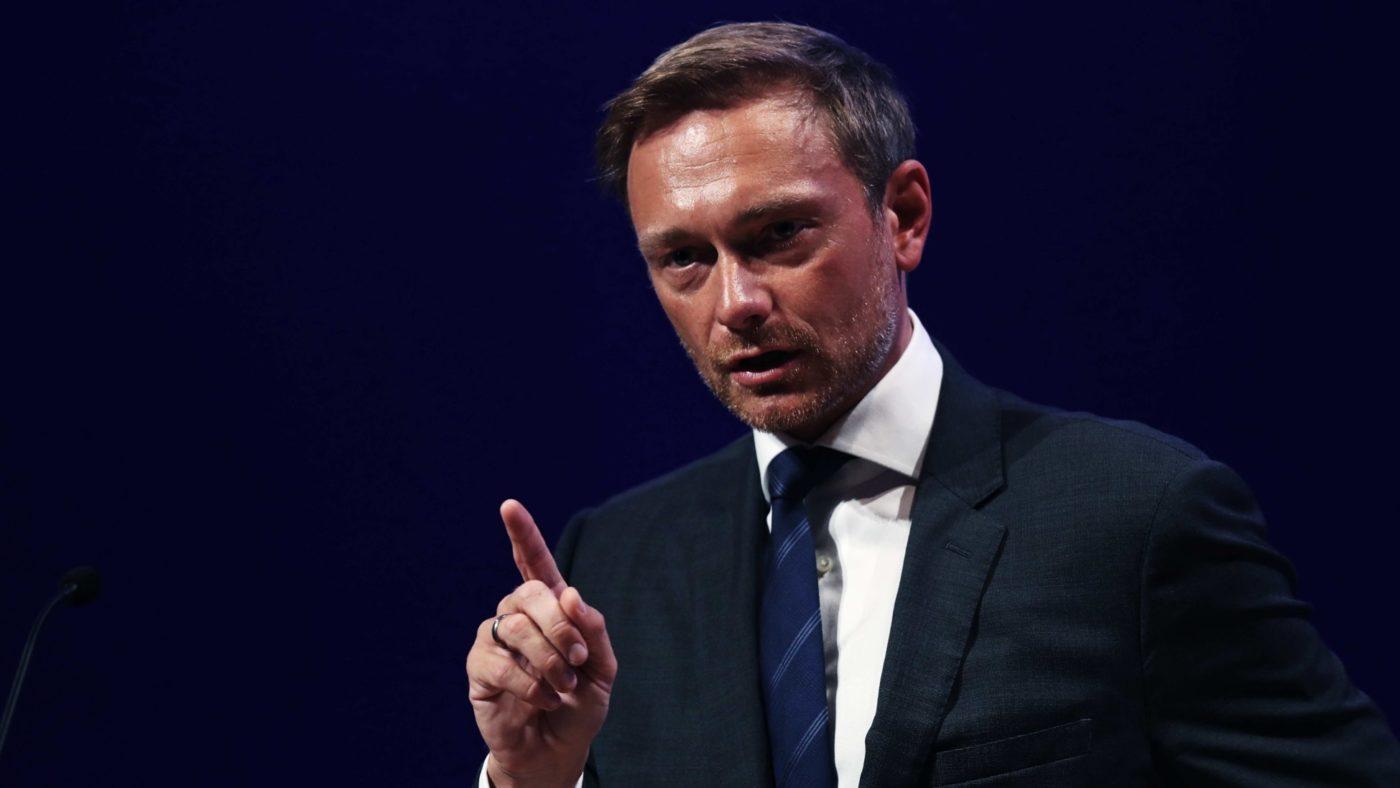Uneventful. That is the word many political commentators use to describe Germany’s parliamentary election in September. Angela Merkel’s only serious rival, Martin Schulz, doesn’t stand a chance. Schulz’s Social Democrat Party SPD is polling at around 25 per cent, while Merkel’s centre-left CDU/CSU is coming in at 40 per cent in some polls.
With politics, though, it’s best not to jump to early conclusions. One of Merkel’s former coalition partners is back in the game and could well shake things up.
The German Free Democrats (FDP) formed a government together with Merkel’s centre-right from 2009 to 2013, and despite being a smaller party, these liberals induced a thumping dose of free-market thinking into the coalition. The FDP refused minimum wage legislation on a federal level, advocating for pricing freedom instead; they liberalised the intercity bus market, which brought down transport costs for consumers; and agitated in favour of balanced budgets, bringing down the deficit while also cutting taxes.
In 2016, under the current coalition of Merkel’s CDU/CSU and the SPD, the federal government in Berlin spent £22.3 billion above its means. It made the fiscally conservative electorate feel distinctly uneasy.
Nonetheless, despite the FDP’s positive impact on Germany’s recovery from the 2008 crisis, the electorate held the party in contempt. This was for several reasons, including a dislike for the snobby and elitist party officials, because of the chaotic party split over Greece’s bailout and the role of the EU, and, worst of all, the “hotel scandal”, in which the party had trousered €1.1 million in campaign contributions from the hotel industry, while lowering their taxes.
Electoral success and government participation made some of its leaders seem smug, particularly as they criticised the media which became a habit for the liberals. Most notable among these voices was the former Vice Chancellor Guido Westerwelle who told the press corps during a party rally: “The published opinion is not always the public opinion.”
For all these reasons, in 2013, the FDP not only lost the right to govern, for the first time in its history, it did not even meet the 5 per cent threshold necessary to enter the Bundestag.
With the party in a shambles, the FDP made Christian Lindner its new leader. At the tender age of 38, the dynamic and charismatic Lindner, who had worked in the military and as an entrepreneur, picked up what was left of the liberals.
Lindner rebranded the party, gave it a new look and a new attitude. “German Mut” (German courage) was the first campaign slogan of the new party, a neat counter to the national pessimism often referred to as German Angst. Lindner promised a return to the ideological roots of ordoliberalism: a flexible labour market and a smaller state.
These liberal democrats couldn’t be more different from their British counterparts. Rather than promoting themselves as a centrist force for moderate politics steeped in compromise, the German liberals shout loudly in defence of their free market ideals. Christian Lindner, who is open about his membership of the German Hayek Society, delivers flamboyant speeches about freeing the market from the shackles of socialism. In 2015, the party’s congress decided on supporting a renewed call for a flat tax as a fairer alternative to the abhorrent progressive tax scheme.
After all, if you have nothing to lose, you might as well be open about your philosophy. And this new unbuttoned approach seems to be working. Last week, the FDP signed a coalition agreement with the CDU in the state of North Rhine-Westfalia, after winning 12 per cent of the votes in the local parliamentary election. Federally, the FDP is polling between 8 and 9 per cent.
The return of the Free Democrats has reawakened the idea of a coalition in Berlin, though polling suggests the FDP isn’t quite strong enough to team up with Merkel. But the party’s upwards drift has plenty of time before the vote on September 24. Lindner hasn’t ruled out a renewed coalition, but the party has already set conditions: last week, it was announced that without the legalising of same-sex marriage, the FDP would not sign a coalition agreement.
This sort of aggressive voice for liberty-leaning reforms is appealing: Angela Merkel is easily swayed by public opinion. And seeing her flip-flop back from intrusive labour laws towards tax cuts would certainly be welcome.
However, the FDP’s record shows that with its success comes a failure to stay on course. To prevent this, the liberals need to built up their parliamentary backbone. Perhaps, even if the numbers did mean that a coalition were possible come September, the wise choice would be go into opposition until 2021.
What is certain is that German democracy desperately needs a free market voice back in parliament. Today, the Bundestag consists of the immense majority of Merkel’s centre-right, Schulz’s Social Democrats, the Green Party and Die Linke, which is the successor of the SED, East Germany’s unity party.
The Berlin parliament is so far to the Left that Jeremy Corbyn would easily pass as a moderate. The house of German democracy hasn’t heard advocacy for small government, balanced budgets and individual liberty in four years.
It’s time Mr Lindner brings it back.


